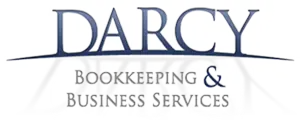


Today’s market is constantly changing and evolving, and competition is fierce. Start-ups and small businesses have to work hard to gain and keep their competitive advantage. To know if your business is doing this effectively, you must keep on top of your finances.
When you start your small business, having a bookkeeper or accountant to manage your tax may be enough. However, as your business becomes established and grows, your finances become more complicated. You can find yourself in a situation where your sales seem to be good but you are struggling to maintain profitability and you don’t really understand why. This is where a CFO comes in.

Bookkeepers and accountants are typically more tax focused. An accountant, for example, ensures your financial records are accurate and comply with all facets of tax law. A CFO is more focused on the long-term financial strategy of your business and makes sure every facet of your business is operating at its optimum.
Some of the areas they can help your business with are:
Hays conducted a survey of 500 CFOs across Australia and New Zealand and found that the most popular qualification for CFOs is a CPA (Certified Practising Accountant). 99% have a degree in business, commerce, finance or accounting, and nearly half hold a master's degree. Over half also have an MBA, and 71% have always worked in finance.
57% of CFOs questioned have also worked outside Australia and nearly all say their time spent overseas has benefited their career.
The love of their profession, their qualifications and wealth of experience make them ideally placed to not only oversee the work done by bookkeepers and accountants but also to draw on their knowledge and experience to guide a business to a profitable future. CFOs have experience in managing revenue and can offer ideas and opportunities to open up new markets or suggest ways to expand your business. The CFO will use their expertise to look in detail at where money should be coming from and where it should be spent. They will guide your business in areas such as budgeting, purchasing, sales, marketing, operations, and even fundraising. They provide leadership and direction to a business.
A good CFO should have a successful background in business. This is important because it means they will also have a large network of specialists who they can call on if they need advice in a particular area.
Key personal qualities of CFOs are their interpersonal and communication skills. They can establish and develop relationships with external partners and stakeholders.
Lenders and investors not only want to see a healthy balance sheet, they also want proof that their investments are secure in the long term. A positive forecast document developed by a CFO will go a long way in giving confidence to your lenders and investor and help you negotiate good terms.
Most large businesses employ a full-time CFO; someone who oversees their team of bookkeepers and accountants. But start-ups and small to medium businesses usually lack the financial resources to afford one. So what can you do?
The answer is to outsource. Get a ‘virtual’ CFO who will be able to help you as and when you require. They don’t always even need to come to your business. According to the Australian Financial Review, it is a growing trend in Australia for accountants to offer an outsourcing service.
It is the advance in technology which has made this possible. Sage says that now 72% of organisations are using cloud-based financial management technology. Automation means less time spent on repetitive tasks and fewer mistakes are made. This frees up time to analyse the data and focus on how to move the business forward.
Modern software also incorporates tools to analyse data which CFOs can monitor. This allows the CFO to make informed decisions based on up-to-the-minute accurate data.
Outsourcing the role of a CFO makes a lot of sense for start-ups, small and medium businesses. You are getting the expertise to help your business grow without the cost of employing a full-time CFO.
